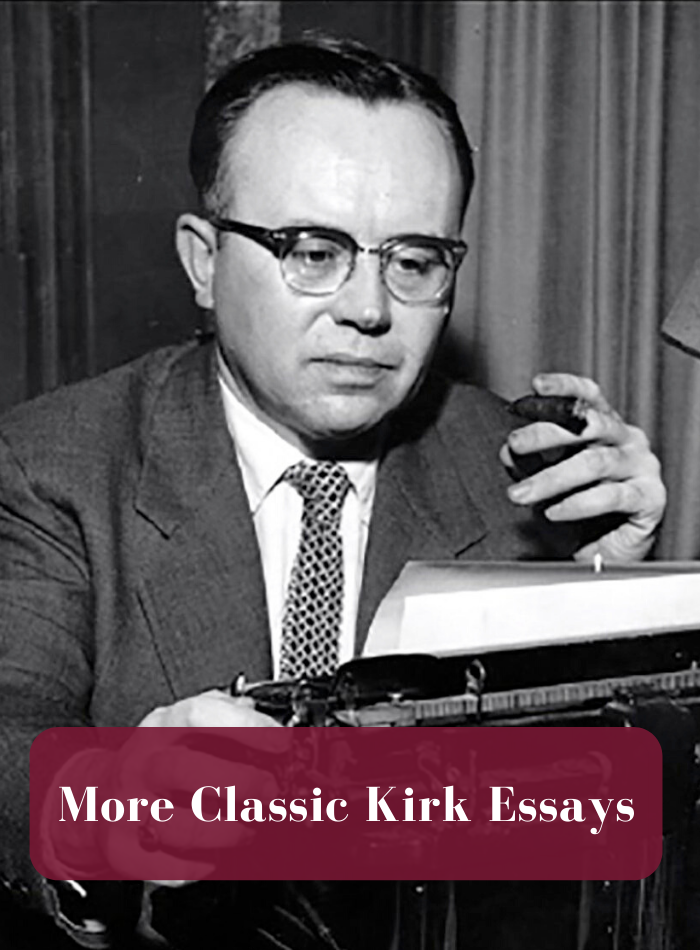Classic Kirk:
a curated selection of Russell Kirk’s perennial essays
“Slow Train to Yesteryear”
To The Point column, Los Angeles Times Syndicate, November 12, 1970.
This commentator having grown up in the railroad yards of Plymouth, Michigan, he misses the hoot and the chug of steam locomotives, extinct on regular railways in America. Until four or five years ago, one still could experience that intense pleasure in Britain; but now, I believe, the last coal-burning steam locomotive has vanished from regular service in the United Kingdom, too.
The Grand Trunk Railroad scheduled one steam train between Grand Rapids and Port Huron, until quite recently, to the delight of children; but that choo-choo, too, is no more. Yet at a few places in these United States, steam locomotives continue to run over short stretches of track, mostly for the edification of tourists.
Up in Missaukee County, Michigan, one such admirable anachronism makes two runs daily, during summer, between Lake City and a small lake at the back of beyond: the round-trip takes about an hour and a half, including a leg-stretching halt at the lake. The train has a pleasant old-fangled dining care, and everything is properly archaic.
My wife and I, with two of our girl babies, were passengers on that run recently. For my wife, born in the Jet Age, this was her first steam train—rather bewildering to her, its discomforts that I took for granted most of my life. (The roadbed in bucolic Missaukee County is somewhat rough, I confess.) To Monica, aged three, the hissing stead was formidable; to Cecilia, aged less than two, the locomotive was no more wondrous than is everything else in her little world of wonder. But I was in my element.
In my student days, being an engineman’s son, I had a railway pass that would take me whenever I liked, from Michigan all the way down to Durham, North Carolina (Duke University), and back. How perfect rail travel was in those times of the Roosevelt Recession, with next to no passengers in any coach, and the immaculate dining car empty but for myself and the cheerful waiters! I have not known such leisurely luxury since: a plague on super-jets!
I would break my journey overnight in Lynchburg, where I would dine in solitary splendor, at a very late hour, in a stately old restaurant now vanished, without trace, alas. Or I would spend a day between trains in Richmond, getting to know Poe’s house and the Capitol and John Marshall’s house and Shockoe Hill Cemetery. Plane travel deprives one of all those edifying stopovers. There was no loss of time, really, because I could read good books uninterrupted for hundreds of miles, as we twisted through the hills of West Virginia.
I hold in a profound contempt those wretches who boast of having driven at breakneck speed all the way from Key West to Sault Ste. Marie, stopping only to sleep for three hours at a Tennessee motel. Their hell will be an endless autobahn; but my paradise will be a dim-lit Pullman, halting majestically at all those whistle-stops which make America great.
